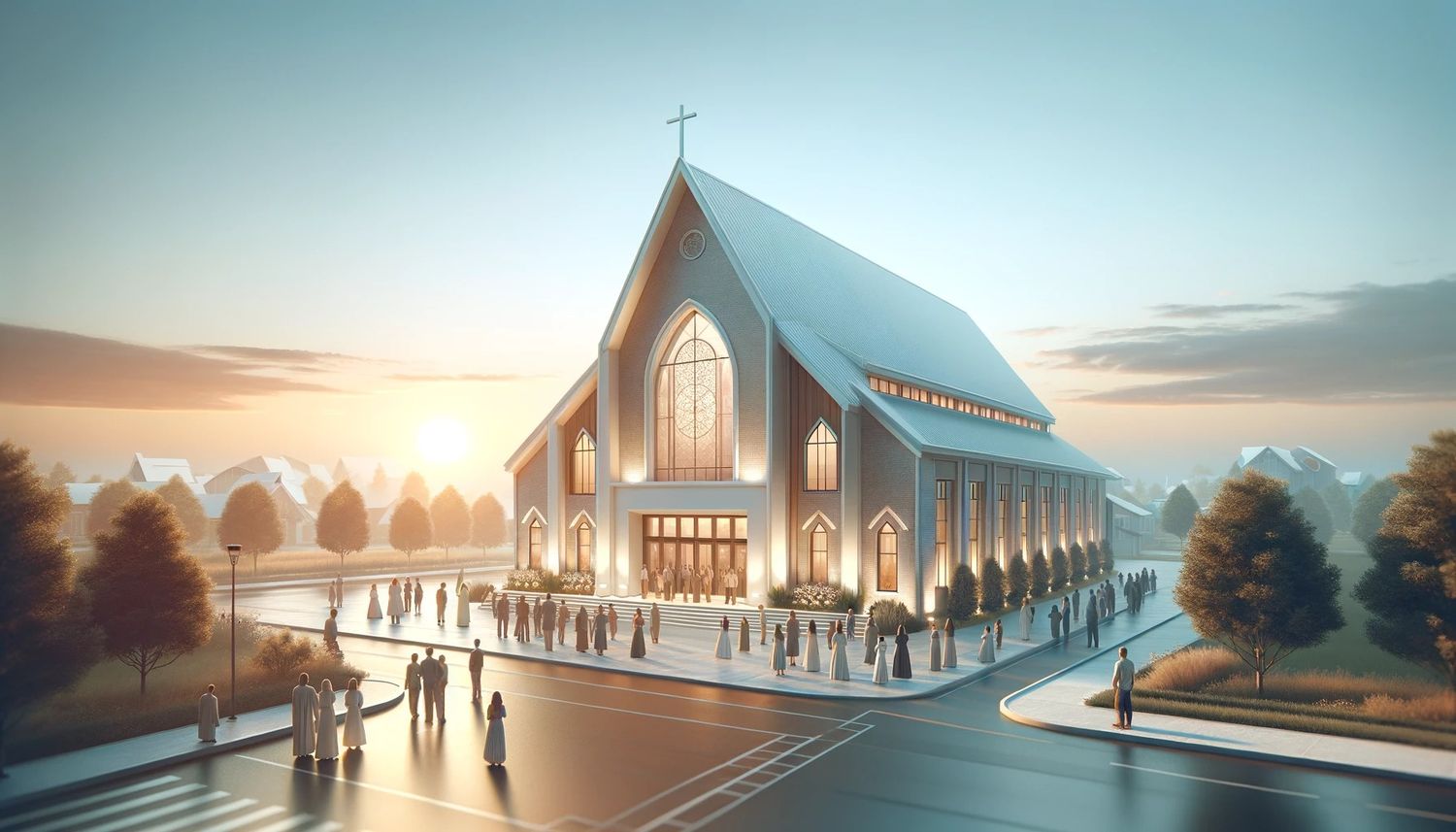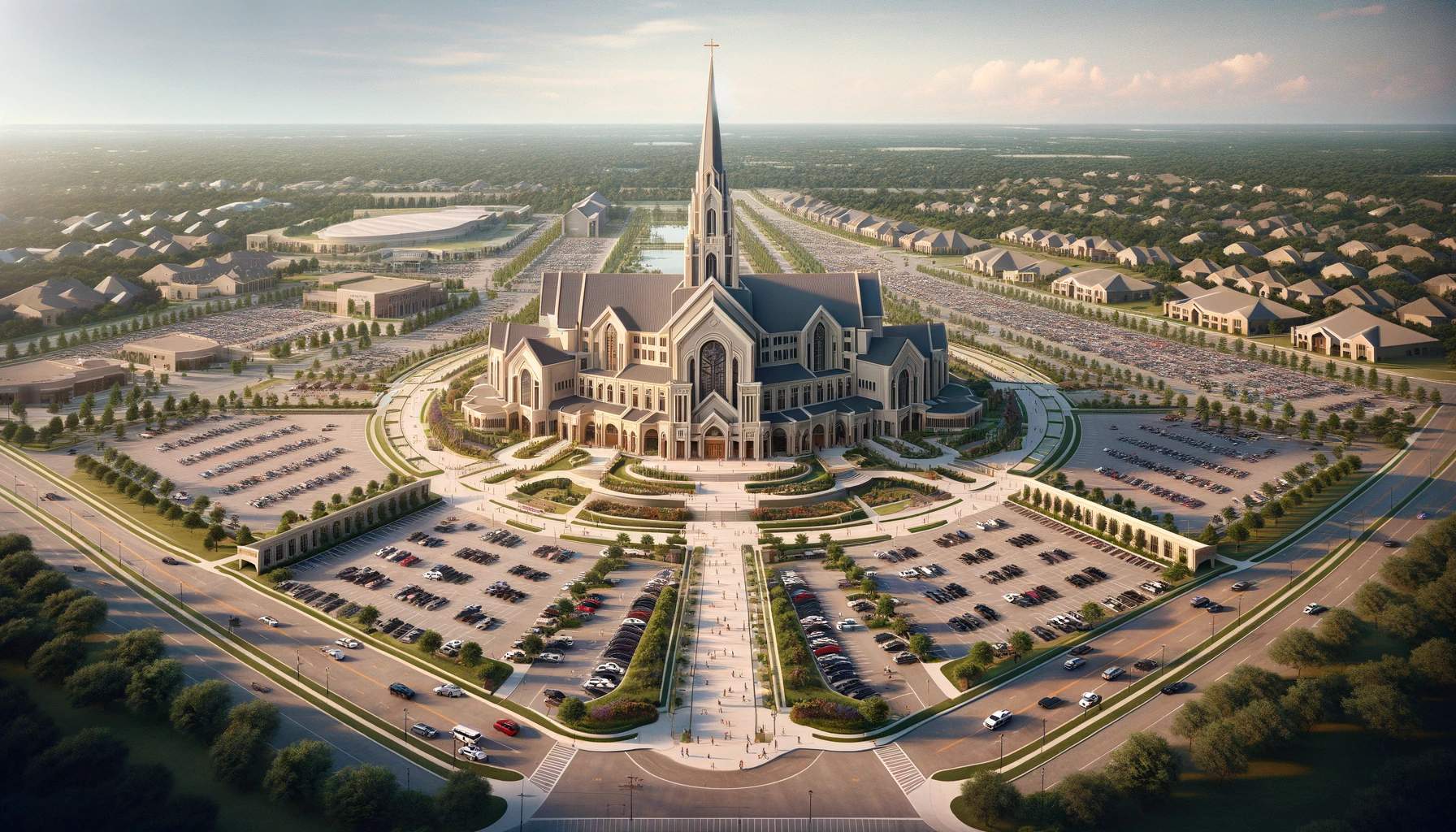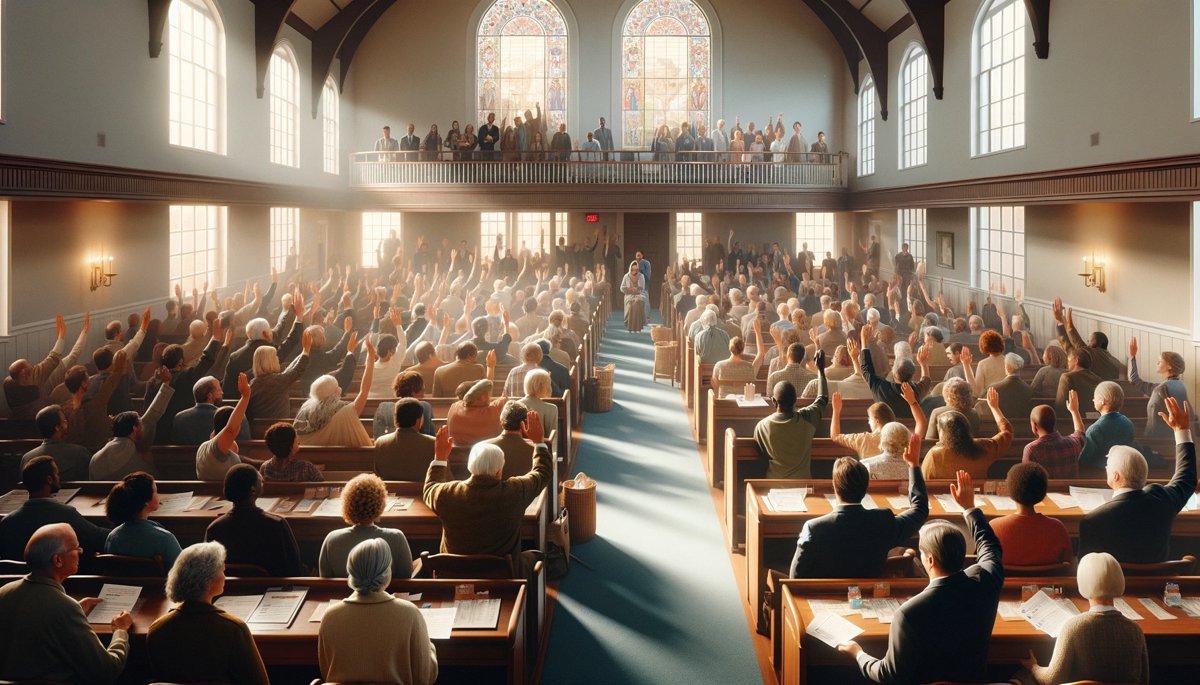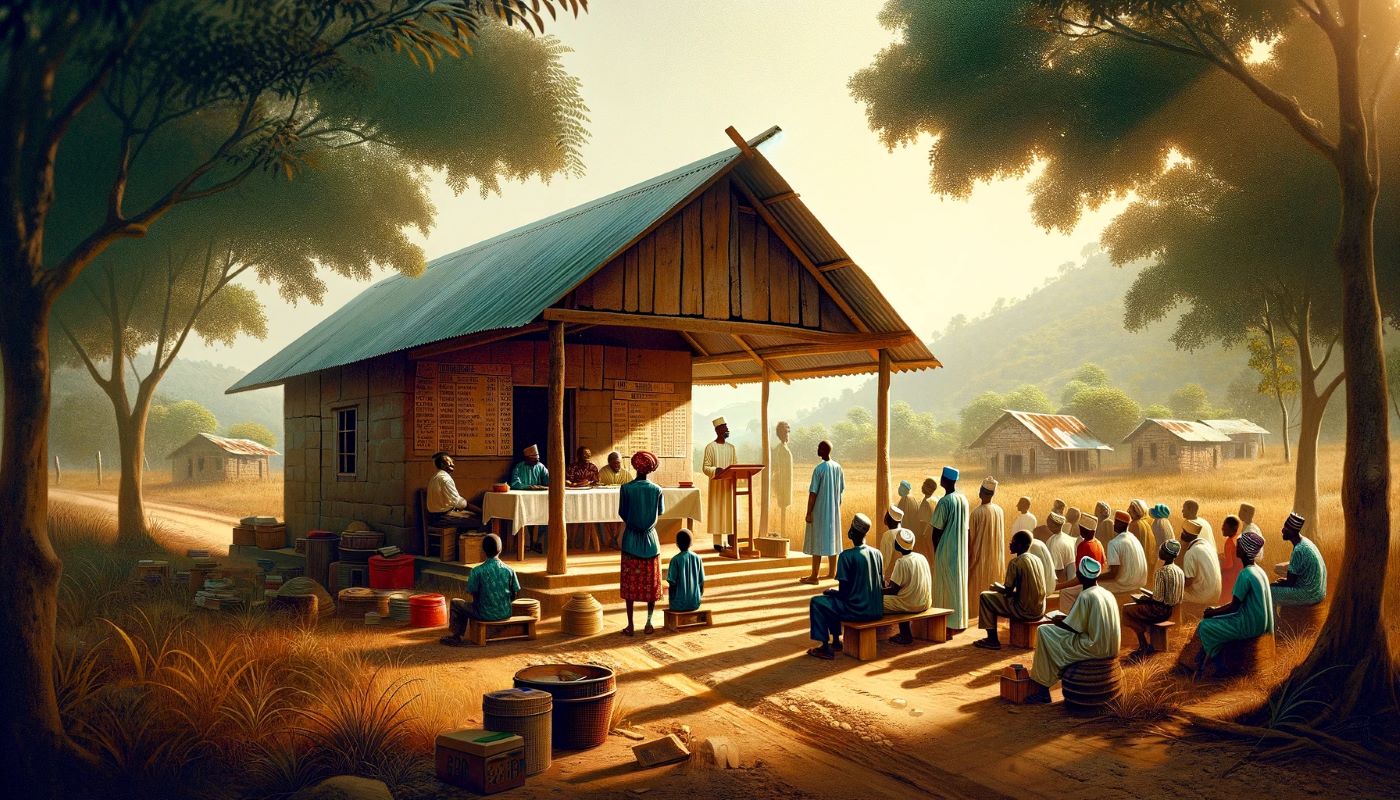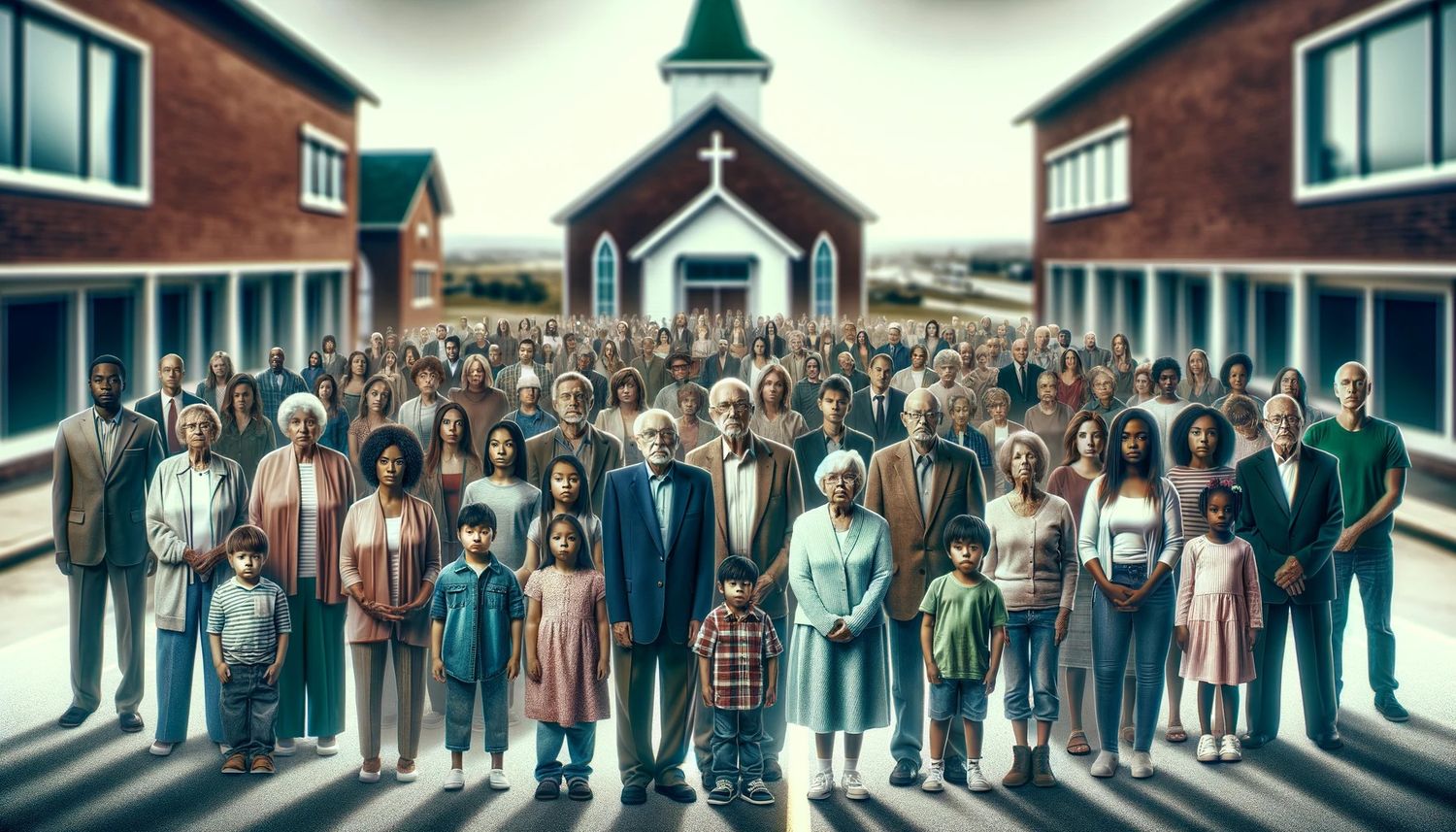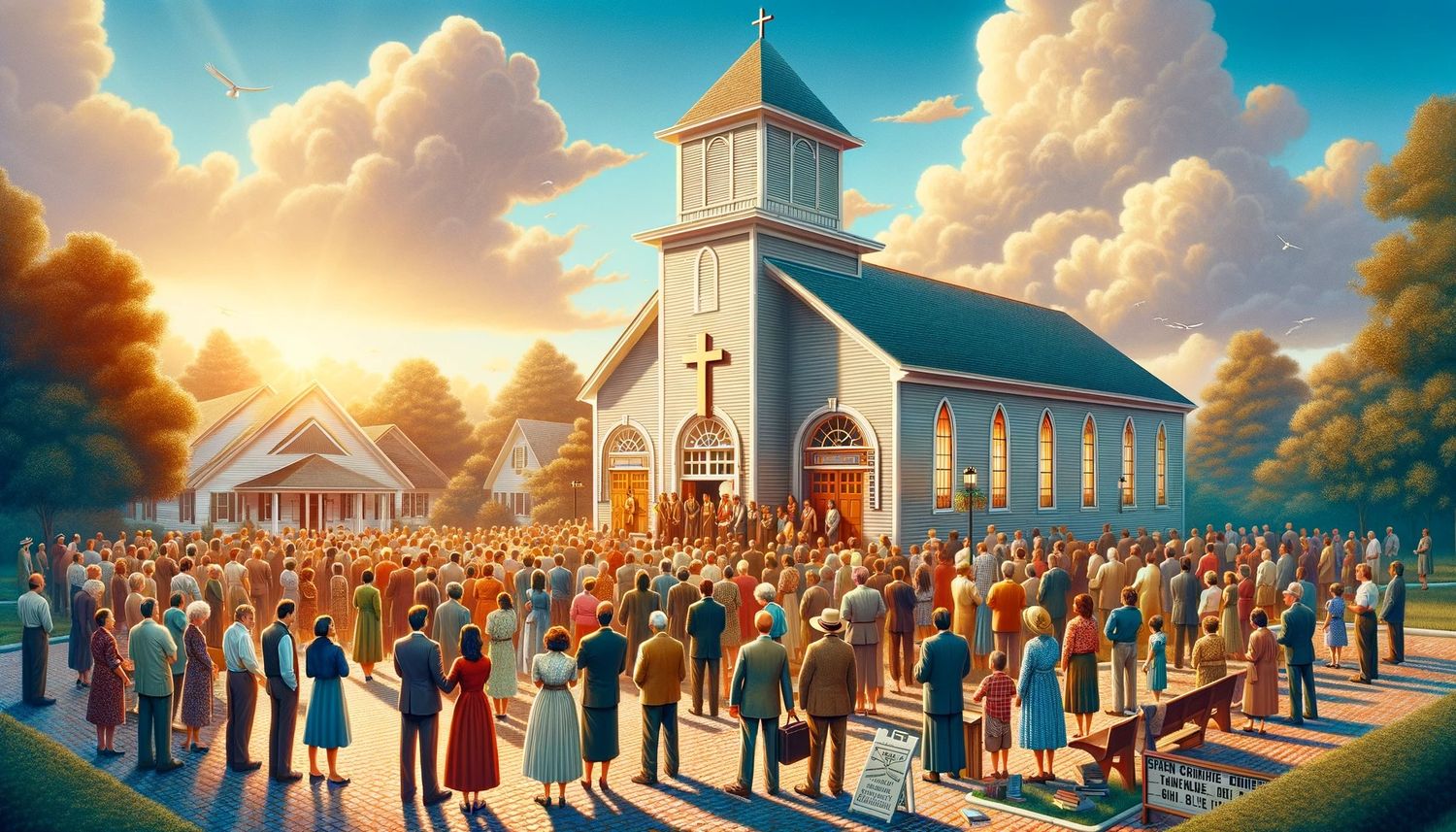Home>Theology and Spirituality>When Was Southern Baptist Church Founded
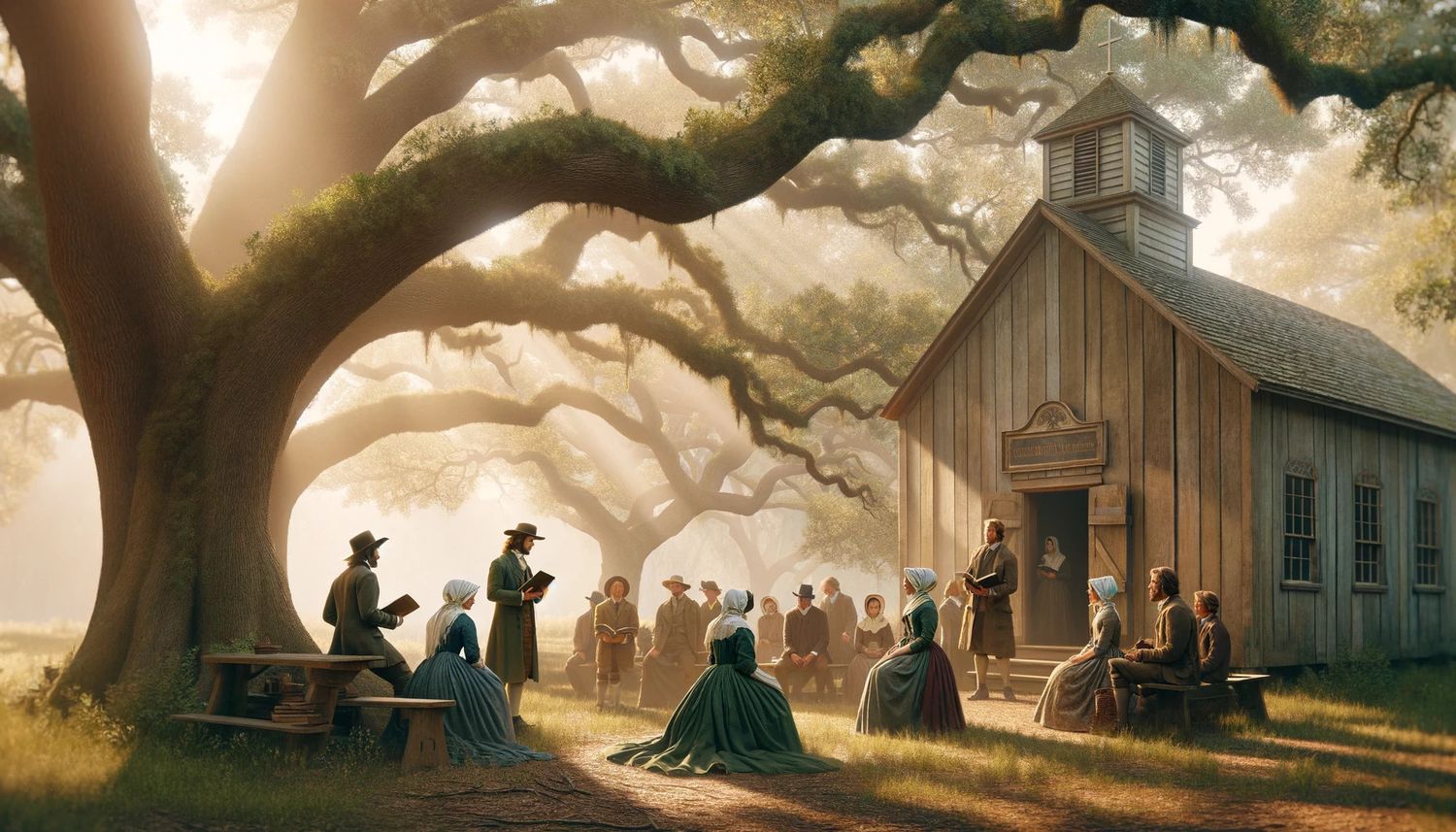

Theology and Spirituality
When Was Southern Baptist Church Founded
Published: February 21, 2024
Ericka Andersen, an editor at Christian.net, expertly merges digital strategy with content creation, focusing on faith and societal issues. Her communication skills enhance the platform's engaging narratives, fostering meaningful dialogue on belief's impact on society.
Discover the founding date of the Southern Baptist Church and its impact on theology and spirituality. Explore the rich history and significance of this influential religious institution.
(Many of the links in this article redirect to a specific reviewed product. Your purchase of these products through affiliate links helps to generate commission for Christian.net, at no extra cost. Learn more)
Table of Contents
Introduction
The Southern Baptist Church holds a significant place in the landscape of American Christianity. Its roots delve deep into history, intertwining with the fabric of the nation's religious evolution. Understanding the origins and development of the Southern Baptist Church provides invaluable insights into the broader narrative of faith in America.
The journey of the Southern Baptist Church is a tale of resilience, faith, and adaptation. It reflects the diverse tapestry of beliefs and practices that have shaped the religious identity of the American South. Exploring the historical milestones and pivotal moments that have defined the Southern Baptist Church unveils a rich tapestry of traditions, doctrines, and cultural influences.
As we embark on this exploration, we will delve into the early history of Baptists in America, tracing the threads that eventually led to the formation of the Southern Baptist Convention. We will uncover the key events that have left an indelible mark on the trajectory of the Southern Baptist Church, shedding light on the challenges, triumphs, and transformations that have characterized its journey.
Join me as we embark on a captivating journey through time, unraveling the story of the Southern Baptist Church and gaining a deeper appreciation for its enduring legacy in the annals of American religious history.
Read more: Who Founded Baptist Church
Early History of Baptists in America
The early history of Baptists in America is a compelling narrative that unfolds against the backdrop of religious persecution, fervent dissent, and the quest for religious freedom. The roots of the Baptist tradition can be traced back to the 17th century when English Separatists, seeking to break away from the Church of England, embarked on a journey to the New World in pursuit of religious autonomy.
One of the earliest proponents of Baptist beliefs in America was Roger Williams, a staunch advocate of religious liberty and the separation of church and state. Williams, who arrived in the Massachusetts Bay Colony in 1631, espoused views that diverged from the Puritan establishment, leading to his eventual banishment from the colony. Undeterred, Williams went on to found the colony of Rhode Island, where he championed the principles of religious freedom and tolerance, providing a fertile ground for the growth of Baptist congregations.
The Baptist movement gained momentum in the American colonies, attracting individuals who sought a more personal and experiential expression of faith. The influence of Baptist preachers such as John Clarke and Obadiah Holmes further solidified the presence of Baptist congregations, with the First Baptist Church of Providence, established by Roger Williams, standing as a testament to the enduring legacy of Baptist faith in America.
The Baptist tradition flourished amidst the diverse tapestry of religious beliefs in the colonies, with its emphasis on believer's baptism and congregational autonomy resonating with those who sought a departure from the hierarchical structures of established churches. The principles of individual conscience, voluntary association, and the priesthood of all believers formed the bedrock of Baptist identity, shaping its trajectory in the American religious landscape.
The early history of Baptists in America is a testament to the enduring spirit of dissent, resilience, and unwavering commitment to the principles of religious freedom. The seeds sown by the early Baptist pioneers would eventually blossom into a vibrant tapestry of Baptist denominations, laying the foundation for the emergence of the Southern Baptist Convention and leaving an indelible mark on the religious mosaic of America.
Formation of the Southern Baptist Convention
The formation of the Southern Baptist Convention (SBC) stands as a pivotal chapter in the annals of American religious history, marking a significant juncture in the evolution of Baptist identity and influence. The roots of the SBC can be traced back to the complex tapestry of theological, social, and regional dynamics that characterized the 19th-century American South.
Amidst the backdrop of the antebellum South, the issue of slavery emerged as a contentious and divisive force, permeating every facet of Southern society, including the realm of religion. The question of slavery and its compatibility with Christian principles ignited fervent debates within Baptist congregations, leading to a schism that mirrored the broader fractures within the nation.
In 1845, this schism culminated in the formation of the Southern Baptist Convention, as delegates from Southern Baptist churches convened in Augusta, Georgia, to establish a separate organizational body. The catalyst for this separation stemmed from the decision of Northern Baptists to prohibit slaveholders from serving as missionaries, a stance that Southern Baptists vehemently opposed.
The founding of the SBC represented a definitive assertion of Southern Baptist autonomy, reflecting a convergence of theological convictions, regional loyalties, and socio-political realities. The Convention's formation solidified the distinct identity of Southern Baptists, providing a platform for the articulation of their theological perspectives and the preservation of their cultural ethos.
Central to the ethos of the SBC was the affirmation of the autonomy of local churches, a principle deeply ingrained in Baptist tradition. This commitment to congregational autonomy, coupled with a fervent adherence to traditional Baptist doctrines, served as the cornerstone of the SBC's identity and governance structure.
The formation of the Southern Baptist Convention not only crystallized the theological and regional distinctiveness of Southern Baptists but also positioned the Convention as a formidable force in shaping the religious landscape of the American South. The SBC's commitment to evangelism, missions, and theological education propelled its growth and influence, establishing it as a prominent voice within American Protestantism.
The emergence of the Southern Baptist Convention heralded a new chapter in the narrative of Baptist faith in America, underscoring the intricate interplay between theology, culture, and regional dynamics. The Convention's founding reverberates as a testament to the enduring legacy of Baptist resilience and adaptation, encapsulating the spirit of a faith tradition that continues to shape the contours of American Christianity.
Key Events in the History of the Southern Baptist Church
-
The Conservative Resurgence:
The late 20th century witnessed a significant ideological shift within the Southern Baptist Convention, known as the Conservative Resurgence. This movement, spanning several decades, sought to reaffirm the Convention's commitment to conservative theological principles, including a literal interpretation of the Bible and the exclusion of women from pastoral leadership. The Conservative Resurgence reshaped the theological landscape of the SBC, leading to the adoption of doctrinal statements and the appointment of conservative leaders, marking a pivotal moment in the Convention's history. -
Cooperative Program and Missions Emphasis:
The Cooperative Program, established in 1925, stands as a cornerstone of the Southern Baptist Convention's mission and outreach efforts. This unified approach to funding missions and ministry initiatives has enabled the SBC to support a vast array of missionary endeavors, theological education, and benevolence programs both domestically and internationally. The emphasis on missions has propelled the SBC into a prominent position as one of the largest missionary-sending organizations in the world, reflecting its enduring commitment to global evangelism and humanitarian aid. -
Ethnic Diversity and Inclusion:
In recent decades, the Southern Baptist Convention has grappled with issues of ethnic diversity and inclusion, reflecting broader societal shifts and the evolving demographics of the American South. Efforts to address racial reconciliation and promote diversity within SBC leadership have emerged as pivotal milestones in the Convention's history. The pursuit of greater inclusivity and the acknowledgment of past racial injustices have underscored the SBC's commitment to fostering a more diverse and equitable faith community, signaling a transformative chapter in its journey. -
Doctrinal and Social Engagement Debates:
The Southern Baptist Convention has been at the forefront of various doctrinal and social engagement debates, grappling with issues such as the role of women in ministry, the nature of biblical authority, and responses to contemporary social challenges. These debates have shaped the theological contours of the SBC and have sparked impassioned discussions within its congregations and leadership circles. The ongoing dialogue surrounding these issues reflects the dynamic nature of the SBC's theological and ethical engagement, highlighting its responsiveness to the evolving complexities of the modern world. -
Challenges and Adaptations:
Throughout its history, the Southern Baptist Convention has navigated a myriad of challenges, including shifts in cultural attitudes, generational dynamics, and the broader ecclesiastical landscape. The ability of the SBC to adapt to these challenges, while remaining steadfast in its core convictions, has been a defining feature of its journey. From embracing technological advancements to addressing contemporary social issues, the SBC has demonstrated resilience and adaptability, positioning itself as a relevant and influential voice in the ever-changing tapestry of American Christianity.
The Southern Baptist Convention's history is replete with pivotal events that have shaped its identity, mission, and influence. These key milestones underscore the dynamic nature of the SBC's journey, reflecting its enduring commitment to theological fidelity, mission outreach, and cultural engagement. As the Convention continues to evolve and respond to the complexities of the contemporary world, its rich history serves as a testament to the enduring legacy of Baptist faith in America.
Conclusion
The journey of the Southern Baptist Church is a testament to the enduring spirit of faith, resilience, and adaptation. From its roots in the rich tapestry of Baptist history in America to the formation of the Southern Baptist Convention and the pivotal events that have shaped its trajectory, the story of the Southern Baptist Church encapsulates the dynamic interplay of theology, culture, and regional dynamics.
The early history of Baptists in America, characterized by a fervent quest for religious freedom and the principles of individual conscience, laid the groundwork for the emergence of the Southern Baptist tradition. The formation of the Southern Baptist Convention in the midst of the complexities of the antebellum South marked a defining moment, solidifying the distinct identity of Southern Baptists and positioning the Convention as a formidable force in American Protestantism.
Key events in the history of the Southern Baptist Church, including the Conservative Resurgence, the emphasis on missions through the Cooperative Program, efforts toward ethnic diversity and inclusion, doctrinal debates, and the ability to navigate challenges and adaptations, have collectively shaped the identity and mission of the Southern Baptist Convention. These milestones reflect the Convention's commitment to theological fidelity, global evangelism, and engagement with contemporary issues, underscoring its enduring relevance in the ever-changing landscape of American Christianity.
As the Southern Baptist Convention continues to navigate the complexities of the modern world, its rich history serves as a guiding light, illuminating the path forward with the timeless values of faith, compassion, and unwavering commitment to the proclamation of the Gospel. The story of the Southern Baptist Church is a narrative of faith in action, a testament to the enduring legacy of Baptist resilience, and a vibrant chapter in the ongoing story of American religious history.






